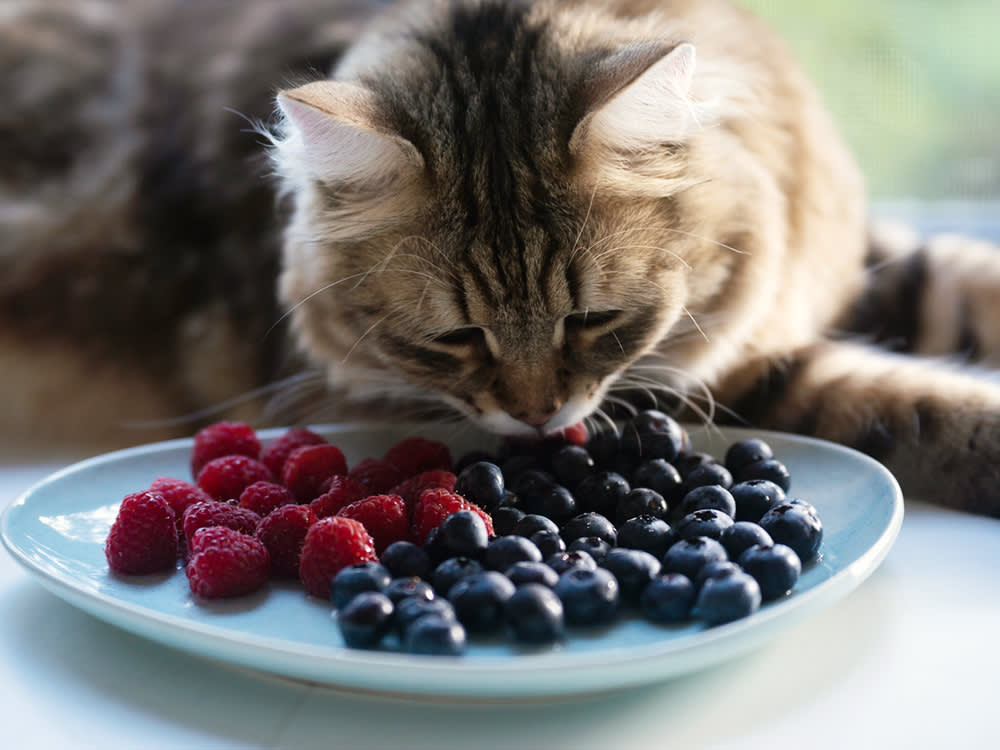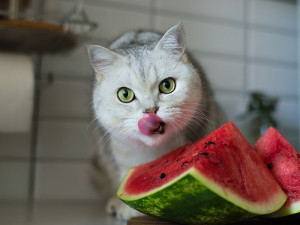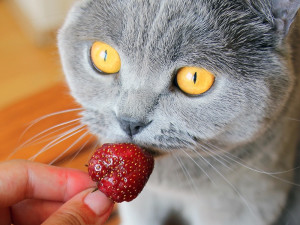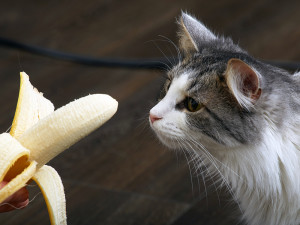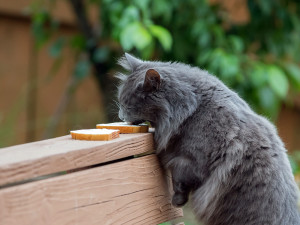Can Cats Eat Blueberries?
Go ahead and serve up the superfood — with a couple caveats.
The best snacks are the ones that satisfy your sugar craving and are actually good for you. Just like you power through a kale salad, your cat might begrudgingly eat their wet and dry food, but they probably suspect there’s something in it that’s healthy for them.
Not with blueberries. Your kitty probably gobbles those sweet little bursts of flavor up before they realize how many vitamins they are ingesting.
Nutrition facts: Blueberries for cats
Are blueberries good for cats?
For such small berries, blueberries pack a big nutritional punch. Blueberries are full of antioxidants, vitamin C, vitamin K, fiber, and phytoflavinoids that have helped earn them their reputation as a superfood. Luckily for our kitties, they’re safe to share.
“There is nothing harmful about blueberries for cats,” says Dr. Maryanne Murphy, clinical assistant professor of nutrition at the University of Tennessee. In fact, there are even some commercial cat foods and treats that list blueberries as ingredients.
How much do you spend on your pet per year?
Can cats eat blueberries?
Yes, cats can eat blueberries, with two caveats:
Oversized blueberries should be cut into smaller pieces.
All blueberries should be cut or pureed before being offered to kittens; the berries could pose a choking hazard due to their small airways.
Are blueberries completely safe for cats?
It’s okay to feed your cat small quantities of blueberries, but Dr. Murphy cautions that the fruits should be a treat, not a replacement for a complete and balanced diet — and treats, including blueberries, should never make up more than 10 percent of your cat’s diet.
Avoid processed foods, such as blueberry pie, blueberry scones, blueberry pancakes, and blueberry jelly that could contain extra ingredients that are toxic to cats. Anytime you introduce a new food into your cat’s diet, watch for vomiting, diarrhea, and other signs that the food may be causing stomach upset.
Other fruits that are good for cats
Peaches: Yes, cats can eat this sweet summertime treatopens in new tab just like humans.
Strawberries: It’s perfectly safeopens in new tab to give strawberries to your kitty.
Bananas: With their high potassium levelsopens in new tab, bananas make a safe treat for your cat.
Other fruits that are not good for cats
Grapes: Both grapes and raisins are highly toxicopens in new tab to cats, and should be avoided at all costs.
Garlic: While garlic may be an essential cooking ingredient for humans, it’s toxic for catsopens in new tab.
Avocado: The high-fat contentopens in new tab found in avocados makes them a not-great choice of snacks for your kitty.
The bottom line: Human food for cats
Cats can eat blueberries, but only in moderation. Like all treats, blueberries should only be given to your cat as a supplement to their complete and balanced cat food diet.
FAQs (People also ask)
Can cats eat blueberries?
Yes, cats can eat blueberries. Some commercial cat foods and treats even list blueberries as one of their ingredients!
Is it OK to give cats blueberries?
Yes, blueberries pack a big nutritional punch, making them a-OK to give to cats.
Why do cats like blueberries?
Some cats don’t actually like blueberries—cats lack certain receptors for sweetness, and so not all cats like sweet treats like blueberries and other fruits.
Are blueberries good for cats?
Blueberries are full of antioxidants, vitamin C, vitamin K, fiber, and phytoflavinoids that have helped earn them their reputation as a superfood, making them very healthy for cats.
References
10 Proven Health Benefits of Blueberriesopens in new tab
Blueberries 101: Nutrition Facts and Health Benefitsopens in new tab
